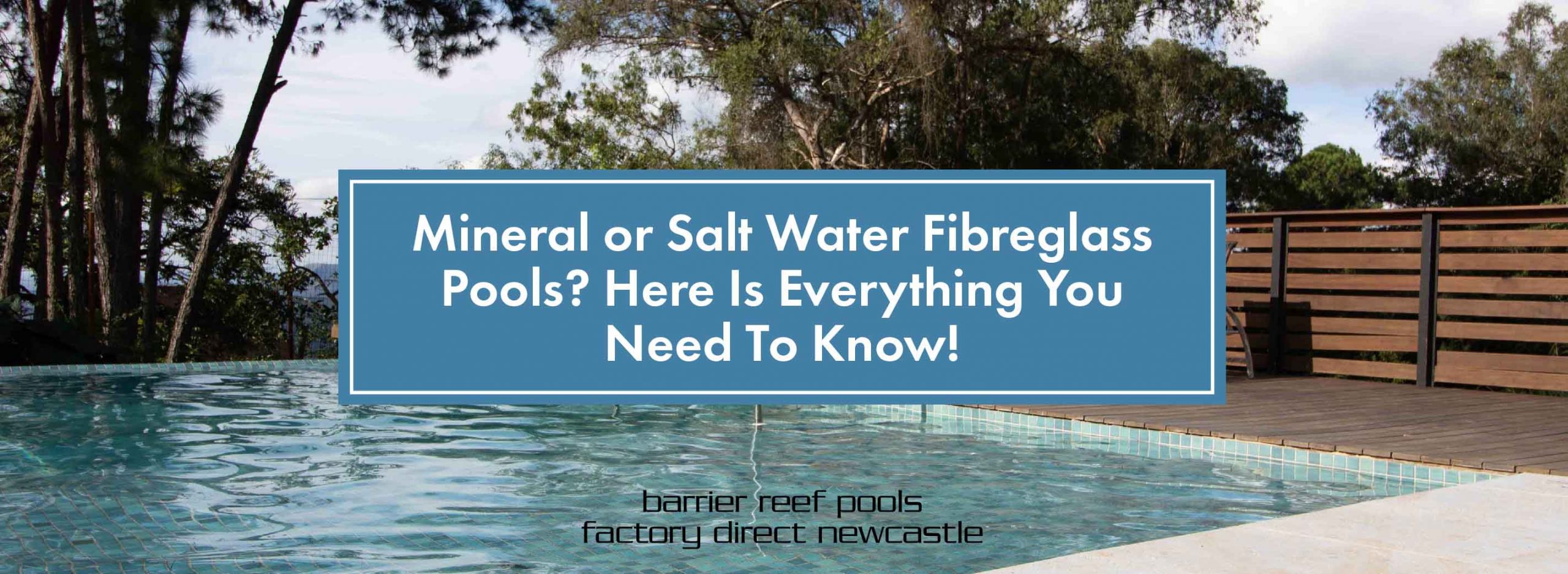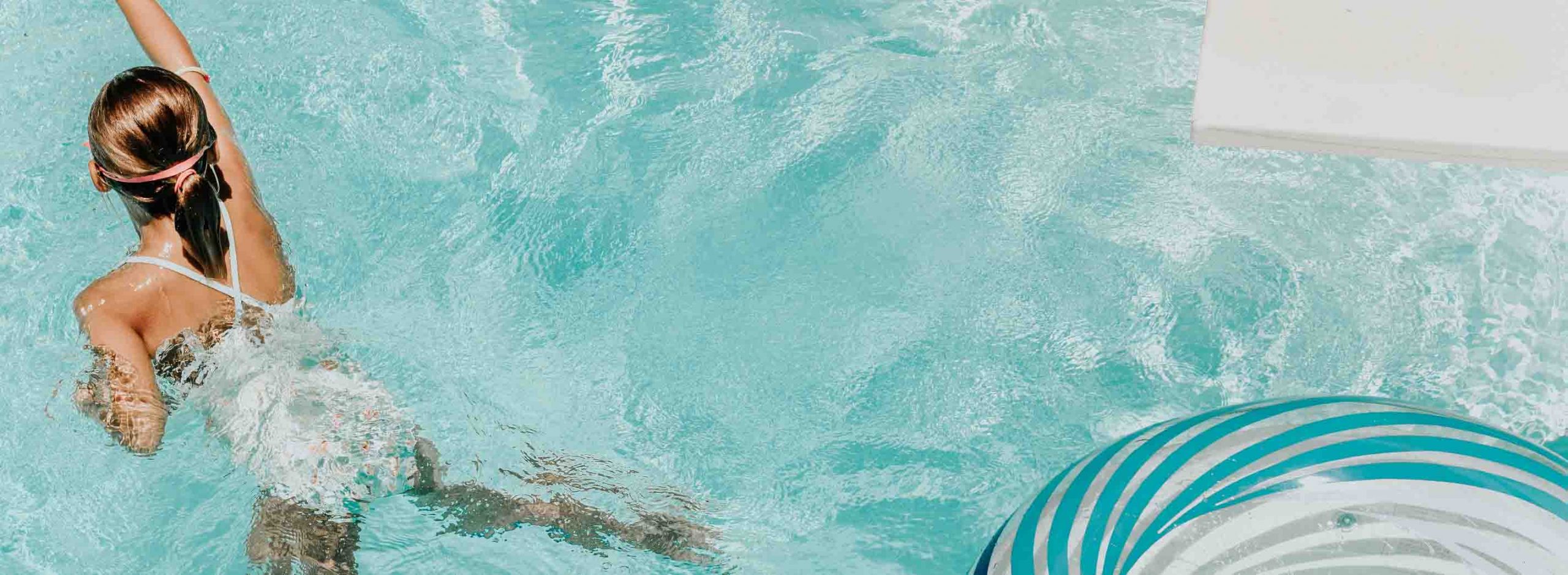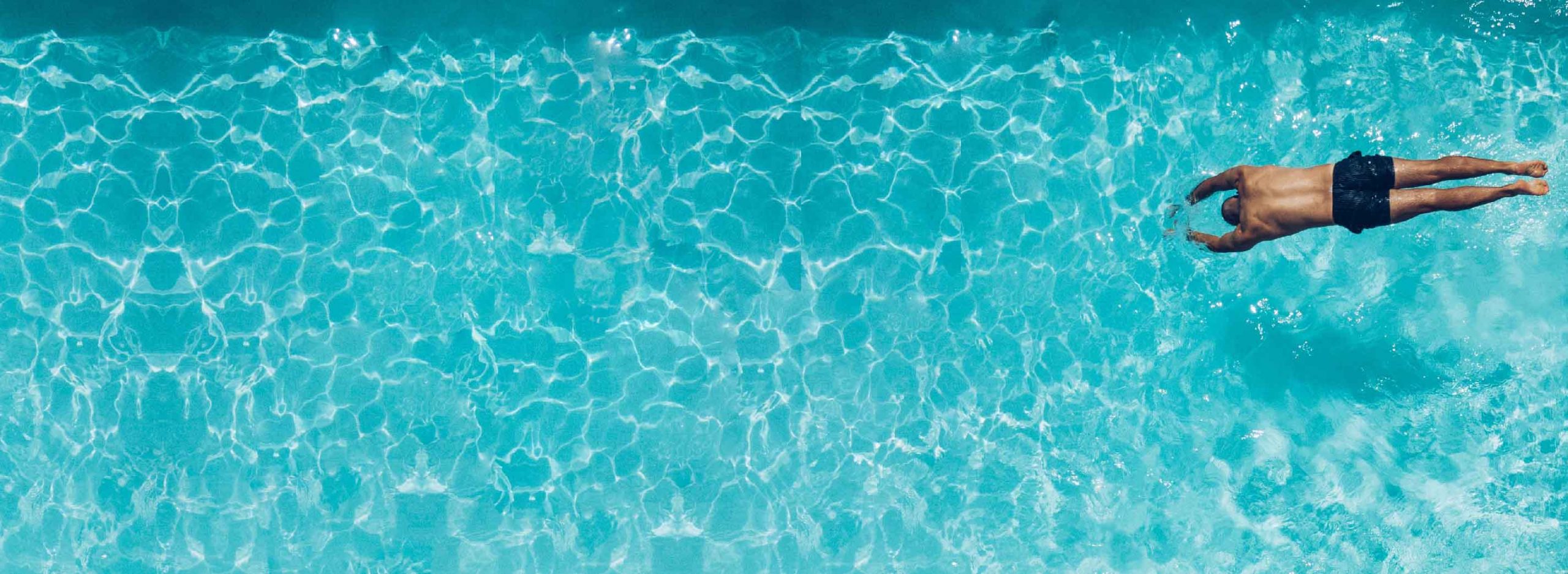Mineral or Salt Water Fibreglass Pools? Here Is Everything You Need To Know!
Pool water is something that you will have to consider while getting a pool. It is something that will define your pool-owning experience and also how the water feels against you. Choosing the right water type for your pool is a necessary step for you.
Some water types are softer than otters and will need different apparatus and techniques to maintain them. These sanitising systems have their own pros and cons, but you will have to decide which suits you the best.

Mineral pools
One of the oldest systems in the world, a mineral water pool is great for people who are sensitive or not a fan of chlorine. It is a harsh chemical and reacts differently to different people. It can cause irritation in the skin and eyes and is generally not advised for people with sensitive skin.
You can reduce your pool’s chlorine consumption up to 50% with a mineral water pool. It has a softer feel as compared to a saltwater one too. The pool chlorinator will distribute chlorine in the pool at regular intervals.
Costs
As compared to other systems, a Mineral water system will cost you $700 to set up. There is minimum drilling or reworking as you can use the existing chlorinator for your minerals. However, you will need to change the pool’s filter and do a water analysis before you implement this new system.
You will have to replace the mineral cartridge every six months or so. This will set you back $100 but is well worth it given the benefits. Also, make sure you consult a pool specialist if you are switching from one system to another.
A mineral water pool also uses chlorine but not as much as a saltwater one. You will nonetheless have to add chlorine to the pool. It is a great disinfectant that keeps the growth of bacteria in check in your pool.
The Benefits
Softer Water
The water in your pool will be easier on your eyes and skin. Harsh chemicals can also lead to hair loss in life. If you like your hair, we would strongly suggest the mineral water pool.
Non-Corrosive
All the metal, concrete, and your fabrics will not have to bear the brunt of the pool water as it is non-corrosive to begin with.
Eco-Friendly
Since chlorine usage is drastically minimised, the water, when released into the ecosystem, is safe.
Less Wear On Equipment
A saltwater pool is not only harsh on your equipment. Whether it be the pool ladders, filters, or piping, mineral water is softer, and so the equipment lasts a lot longer.
Compatible With Most Pools
Since it is softer and non-corrosive, it is great for concrete and vinyl pools too. The water does not react with the inner lining of the pool and remains chemically stable for longer.
The only negative is that you cannot get rid of the chlorine that you will have to use in any case as a disinfecting agent. It is very popular amongst people with skin problems and people who want really clean water like natural sources.
It is devoid of impurities and toxins and is very cost-effective in the long run. Since it does wear your equipment as fast as the saltwater system, its operational and associated costs are also low.

Salt Water Systems In Fibreglass Pools
These are what you would expect to see at most places, as they have been the industry standard for years. Many of the types of equipment were developed for saltwater systems and later adapted for other water types. Some of the most common systems are easy to find, and most pool specialists are very comfortable working with them.
You can add saltwater to your fibreglass without modifying anything. It works as a drop-in replacement, and you won’t have to think about wear and tear ever again.
It has a chlorinator that adds chlorine to the pool, but additionally, you will also have to add chlorine to the pool. Still, you will be using less than a traditional chlorine pool but more than a mineral water pool.
Is Salt Water the better option when it comes to pool sanitation? Find out here!
Costs
In most cases, a saltwater pool is much more expensive to set up and maintain. You can get a starter kit at $800, but in the long run, you save a lot by not spending much on chemicals.
As time goes on, small costs like that of chemicals add up very quickly and cause problems later on. The salt that you need to put in the pool is also cheap and won’t break the bank. It is cheaper than chlorine and keeps your operational costs down in the long term.
The Benefits
No Chemicals
The main advantage of saltwater pools is that you do not need to use any harsh chemicals to keep the water clean. You get to cut back on chlorine and save money while doing that.
Solar-Powered
It is one of the only water types that is compatible with solar water heaters. Essentially it helps you save money with both low cost of operations and reduced electricity bills due to solar water heaters.
Soft Water
While it may not be as soft as mineral water, it is still a lot softer than the water in traditional chlorine pools. You will experience no irritation in the eyes and skin after being in the water for long periods of time.
The main problem with saltwater pools is that if there are any problems with water quality, they can be hard to rectify. The large amount of salt that needs to be poured into the pool can be corrosive to the metal in and around the pool.
Also, if you put in a lot of salt frequently, then there is a chance that the plants near the pool will suffer. Rusting of metals is also a concern as salt is very corrosive in the long term.

All in all, consider what the best option is, given your surroundings and the pool setup that you have. Mineral water has a silk-like texture, while a saltwater pool is the middle ground of all the water types.
Contact us if you have any doubts, and our experts will be more than happy to help you out. We have the best deals in the area and can help you find all the answers to your pool-related needs.

